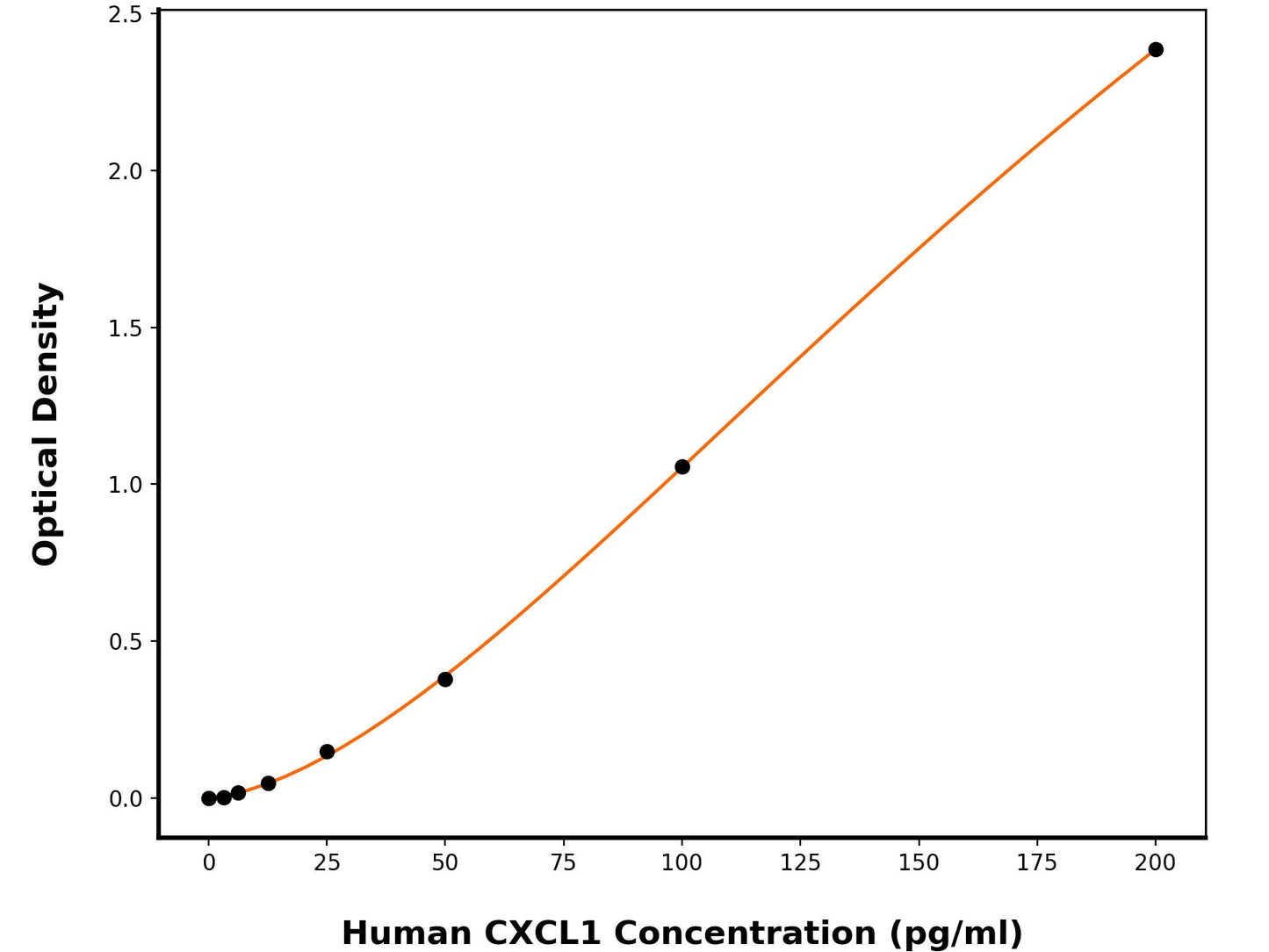1
/
of
1
Human Growth-Regulated Alpha Protein (CXCL1) ELISA Kit
Human Growth-Regulated Alpha Protein (CXCL1) ELISA Kit
This ELISA kit is designed to detect Human Growth-Regulated Alpha Protein (Human CXCL1). The assay plate has been pre-coated with mouse anti-Human CXCL1 monoclonal antibody. When the sample containing CXCL1 is added to the plate, it binds to the antibodies coated on the wells. Then, a horseradish peroxidase conjugated mouse anti-Human CXCL1 Antibody is added to the wells and binds to CXCL1 in the sample. After washing the wells, substrate solutions are added, and the color intensity is directly proportional to the amount of Human CXCL1 present. The reaction is stopped by adding an acidic stop solution, and the absorbance is measured at 450 nm.
Catalog No:
BPE146
Regular price
$624.00 USD
Regular price
$480.00 USD
Sale price
$624.00 USD
Unit price
/
per
2 weeks
Couldn't load pickup availability
Product Details
Species Reactivity
Human
Sensitivity
0.61 pg/mL
Detection Range
3.13-200 pg/mL
Sample Type
Serum, plasma, cell culture supernates
Incubation(s)
3.5 hour(s)
Research Areas
Immunology, Neuroscience, Stem cells, Signal Transduction
Background
The Chemokine (C-X-C motif) Ligand 1, CXCL1, is a small cytokine belonging to the CXC chemokine family that was previously called GRO1 oncogene, GRO?, KC, Neutrophil-activating protein 3 (NAP-3) and melanoma growth stimulating activity, alpha (MSGA-a). CXCL1 already known to be important in osteoarthritis (OA), as a novel target gene of transcription factor AP-2? in chondrocytes and support the important role of AP-2? in cartilage. CXCL1 is a potent neutrophil chemoattractant with recognized roles in angiogenesis and inflammation. CXCL1 is a novel immediate PTH/PTHrP-responsive gene. CXCL1 may act as a chemoattractant for osteoclast precursors. CXCL1 may also have important pro-nociceptive effects via its direct actions on sensory neurons, and may induce long-term changes that involve protein synthesis. CXCL1 plays a critical nonredundant role in the development of experimental Lyme arthritis and carditis via CXCR2-mediated recruitment of neutrophils into the site of infection. CXCL1 functions through CXCR2 to transactivate the EGFR by proteolytic cleavage of HB-EGF, leading to activation of MAPK signalling and increased proliferation of epithelial ovarian cancer (EOC) cells. It might limit tumor growth by reinforcing senescence early in tumorigenesis. Thus, CXCL1 plays a role in spinal cord development by inhibiting the migration of oligodendrocyte precursors and is involved in the processes of angiogenesis, inflammation, wound healing, and tumorigenesis.
Shipping Condition
Shipped on cold gel packs.
Storage Condition and Shelf Life
This product can be stored at 2-8C.
Analyte
Growth-regulated alpha protein
Regulatory Status
For Research Use Only

